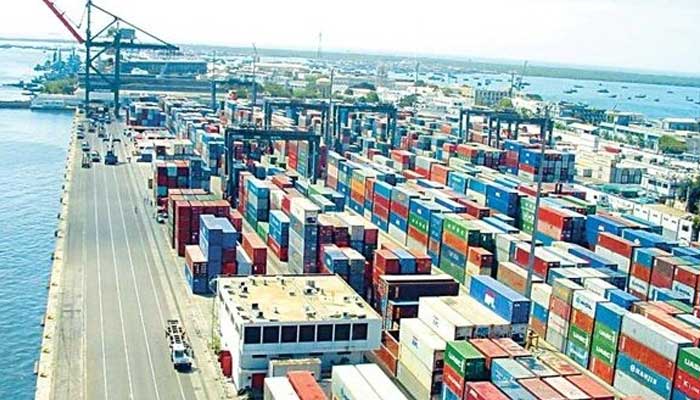Homegrown strategy ready to spur growth, boost exports
ISLAMABAD: Pakistan Tehreek-e-Insaf-led government has prepared a homegrown 10-point economic strategy to spur growth and that entails shift of trade policy formulation’s power to commerce ministry from the Federal Board of Revenue as well as support to SMEs to create jobs and boost exports, officials said on Monday.
The officials said there is still a possibility of moving ahead with another bailout package from the International Monetary Fund (IMF) that might lead to compromising growth in the medium-term.
The 10-point agenda includes ensuring competitive exchange rate, provision of exporters with reliable access to power and gas utilities, taking away powers to make trade policy decisions from the Federal Board of Revenue, immediate payment of sales tax refunds and duty drawbacks, reduction in tariff on intermediate goods, improving exporters access to intermediate goods, reforms for statutory regulatory order regime, elimination of distinction between industrial and commercial importers, improving connection with global value chains and capitalising on China-Pakistan Economic Corridor projects. Ministry of Finance said accelerating export growth is the key to breaking the ‘stop go’ cycle of growth and achieving a sustainable high growth rate.
“The development of SME sector is essential for generating the large number of jobs that are needed,” the finance ministry said in a statement.
Officials said the government is to approve SME policy during the current fiscal year, strengthen small and medium enterprise development authority in next fiscal year, implement national financial inclusion strategy from FY2019 to 2023, develop productivity improvement plan by FY2020 and establish technology up-gradation fund by 2020.
Government also decided to establish trade facilitation unit in FBR, establish model business friendly customs clearance unit, approve and implement trade related investment policy framework during the current fiscal year.
The ministry of finance placed 12-point action plan, including establishment of a pilot garment city, improving SMEs access to finance, enhancing SME-focused skills training program, promoting industrial clusters, reducing regulatory burden on SMEs, reforming regulatory compliance regime, simplifying business registration and improving access to markets.
Analysts said the IMF programs in Pakistan have proven to clip growth in the short-term contrary to their mission to promote high employment and sustainable economic growth, and reduce poverty.
Notably, structural changes impact micro, small and medium enterprises (MSME), which constitute more than 95 percent of all enterprises in the country, contribute about 40 percent to GDP, and employ more than 70 percent of nonfarm labor.
“For medium enterprises like ours, there are two sides to the effects of the IMF aid package: those that are revealed (tangible) and those that are not revealed at the outset,” Ashfaq Hussain, chief executive officer of a Karachi-based auto parts manufacturer International Impex said. But, not all voices are against the impending IMF bailout.
“True, that IMF programs are tough. Let us also accept their effects on the economy in general and MSMEs in particular, are disastrous,” Zafar Mahmood, head of Research at the National University of Sciences and Technology said.
Pakistan ranks 136 out of 190 countries on the ease of doing business index. In the region, Iran is ranked at 128, Nepal 110, Sri Lanka 100 and India 77.
“Although we cannot do anything to prevent the government from going back to the IMF, we do need to start taking a longer-term view with regard to the SME sector by focusing on systematically strengthening exports, improving productivity and assisting more enterprises with getting documented in order to enable greater access to finance,” Mehr Shah, director of Knowledge Management and Communications at Karandaaz Pakistan said.
-
 James Van Der Beek’s Family Faces Crisis After His Death
James Van Der Beek’s Family Faces Crisis After His Death -
 Courteney Cox Celebrates Jennifer Aniston’s 57th Birthday With ‘Friends’ Throwback
Courteney Cox Celebrates Jennifer Aniston’s 57th Birthday With ‘Friends’ Throwback -
 Camila Cabello Shares Update On Her Hair Two Years After Going Platinum
Camila Cabello Shares Update On Her Hair Two Years After Going Platinum -
 Prince William Steps In To Help Farmer's Awareness Mission
Prince William Steps In To Help Farmer's Awareness Mission -
 Queen Elizabeth Tied To Andrew's Sexual Abuse Case Settlement: Report
Queen Elizabeth Tied To Andrew's Sexual Abuse Case Settlement: Report -
 Mark Ruffalo Urges Fans To Boycott Top AI Company Boycott
Mark Ruffalo Urges Fans To Boycott Top AI Company Boycott -
 Prince William Joins Esports Battle In Saudi Arabia
Prince William Joins Esports Battle In Saudi Arabia -
 Princess Beatrice, Eugenie Are Being Ripped Apart: ‘Their Relationship Is Fully Fractured’
Princess Beatrice, Eugenie Are Being Ripped Apart: ‘Their Relationship Is Fully Fractured’ -
 Arden Cho Shares Update On Search For ‘perfect’ Wedding Dress Ahead Of Italy Ceremony
Arden Cho Shares Update On Search For ‘perfect’ Wedding Dress Ahead Of Italy Ceremony -
 Ariana Madix Goes Unfiltered About Dating Life
Ariana Madix Goes Unfiltered About Dating Life -
 Prince William Closes Saudi Arabia Visit With Rare Desert Shot
Prince William Closes Saudi Arabia Visit With Rare Desert Shot -
 Priyanka Chopra Breaks Silence On Rumors Questioning Marriage To Nick Jonas
Priyanka Chopra Breaks Silence On Rumors Questioning Marriage To Nick Jonas -
 'King Charles Acts Fast Or Face Existential Crisis' Over Andrew Scandal
'King Charles Acts Fast Or Face Existential Crisis' Over Andrew Scandal -
 Brooklyn Beckham Charging Nearly £300 In Ticket Cost For Burger Festival
Brooklyn Beckham Charging Nearly £300 In Ticket Cost For Burger Festival -
 Prince William Makes Unexpected Stop At Local Market In Saudi Arabia
Prince William Makes Unexpected Stop At Local Market In Saudi Arabia -
 Zayn Malik Shares Important Update About His Love Life
Zayn Malik Shares Important Update About His Love Life




